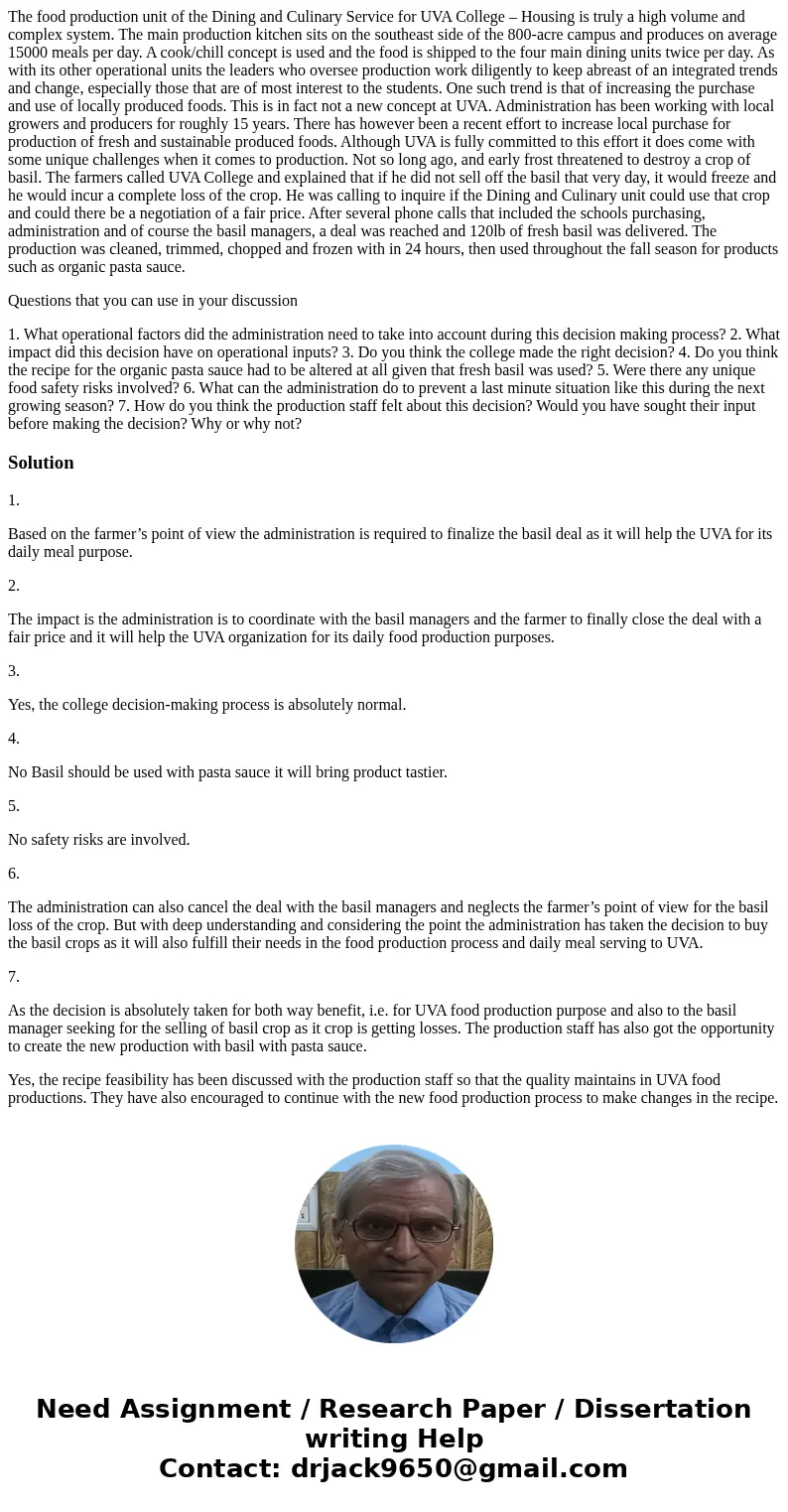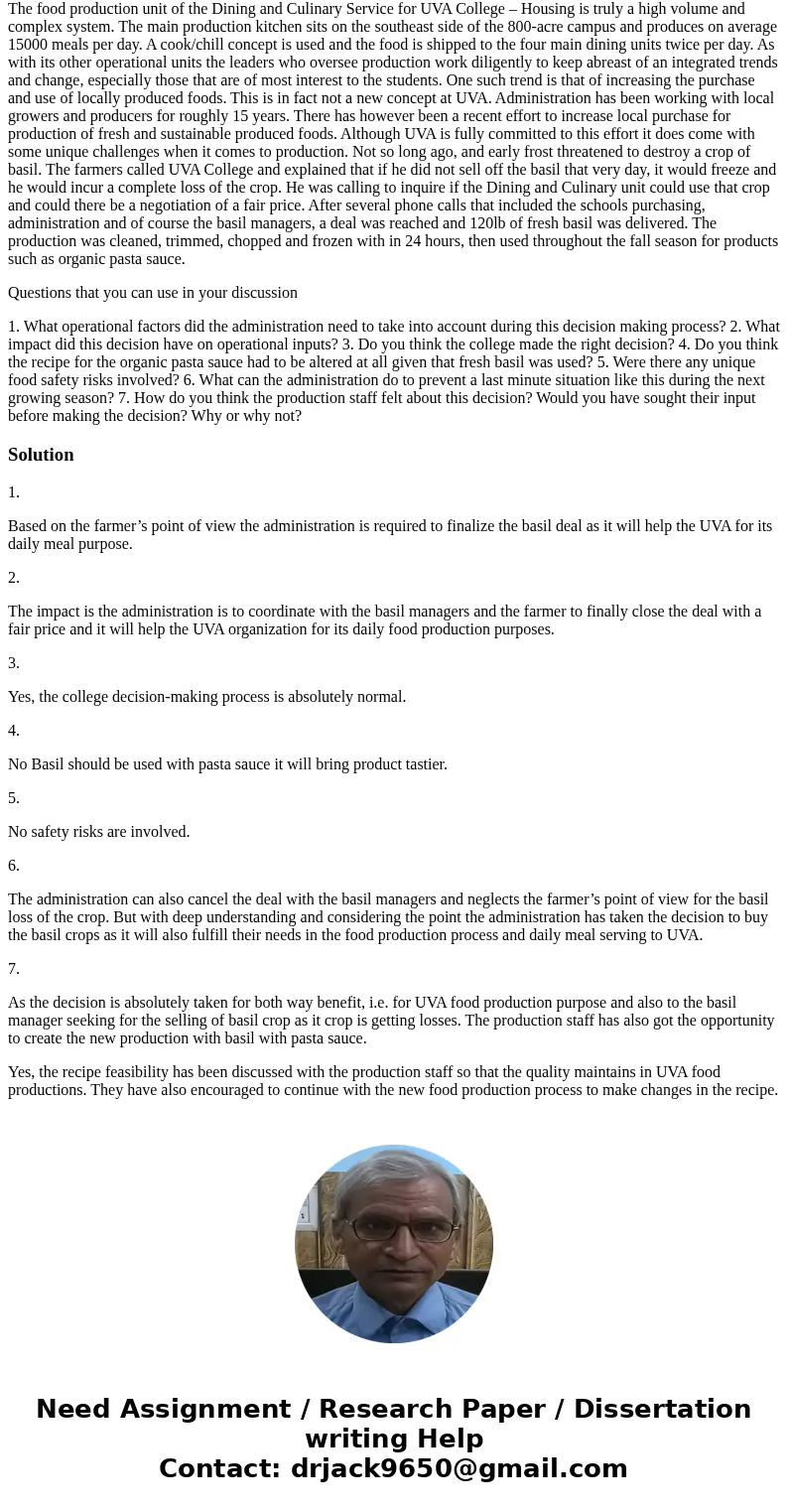The food production unit of the Dining and Culinary Service
The food production unit of the Dining and Culinary Service for UVA College – Housing is truly a high volume and complex system. The main production kitchen sits on the southeast side of the 800-acre campus and produces on average 15000 meals per day. A cook/chill concept is used and the food is shipped to the four main dining units twice per day. As with its other operational units the leaders who oversee production work diligently to keep abreast of an integrated trends and change, especially those that are of most interest to the students. One such trend is that of increasing the purchase and use of locally produced foods. This is in fact not a new concept at UVA. Administration has been working with local growers and producers for roughly 15 years. There has however been a recent effort to increase local purchase for production of fresh and sustainable produced foods. Although UVA is fully committed to this effort it does come with some unique challenges when it comes to production. Not so long ago, and early frost threatened to destroy a crop of basil. The farmers called UVA College and explained that if he did not sell off the basil that very day, it would freeze and he would incur a complete loss of the crop. He was calling to inquire if the Dining and Culinary unit could use that crop and could there be a negotiation of a fair price. After several phone calls that included the schools purchasing, administration and of course the basil managers, a deal was reached and 120lb of fresh basil was delivered. The production was cleaned, trimmed, chopped and frozen with in 24 hours, then used throughout the fall season for products such as organic pasta sauce.
Questions that you can use in your discussion
1. What operational factors did the administration need to take into account during this decision making process? 2. What impact did this decision have on operational inputs? 3. Do you think the college made the right decision? 4. Do you think the recipe for the organic pasta sauce had to be altered at all given that fresh basil was used? 5. Were there any unique food safety risks involved? 6. What can the administration do to prevent a last minute situation like this during the next growing season? 7. How do you think the production staff felt about this decision? Would you have sought their input before making the decision? Why or why not?
Solution
1.
Based on the farmer’s point of view the administration is required to finalize the basil deal as it will help the UVA for its daily meal purpose.
2.
The impact is the administration is to coordinate with the basil managers and the farmer to finally close the deal with a fair price and it will help the UVA organization for its daily food production purposes.
3.
Yes, the college decision-making process is absolutely normal.
4.
No Basil should be used with pasta sauce it will bring product tastier.
5.
No safety risks are involved.
6.
The administration can also cancel the deal with the basil managers and neglects the farmer’s point of view for the basil loss of the crop. But with deep understanding and considering the point the administration has taken the decision to buy the basil crops as it will also fulfill their needs in the food production process and daily meal serving to UVA.
7.
As the decision is absolutely taken for both way benefit, i.e. for UVA food production purpose and also to the basil manager seeking for the selling of basil crop as it crop is getting losses. The production staff has also got the opportunity to create the new production with basil with pasta sauce.
Yes, the recipe feasibility has been discussed with the production staff so that the quality maintains in UVA food productions. They have also encouraged to continue with the new food production process to make changes in the recipe.


 Homework Sourse
Homework Sourse